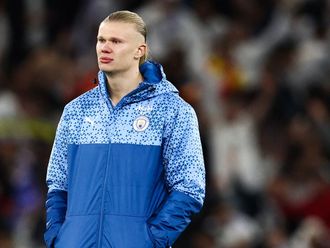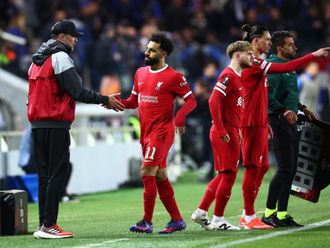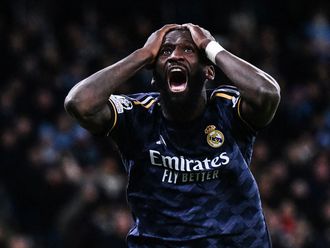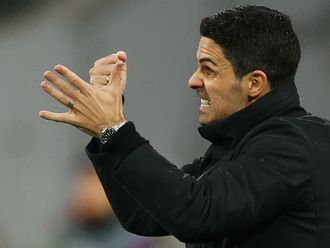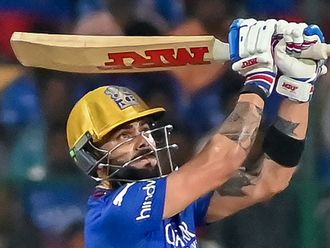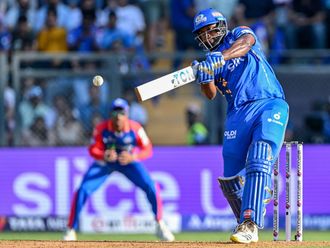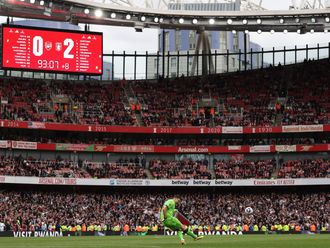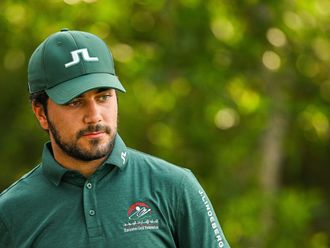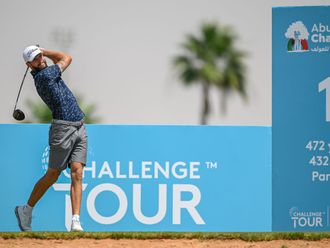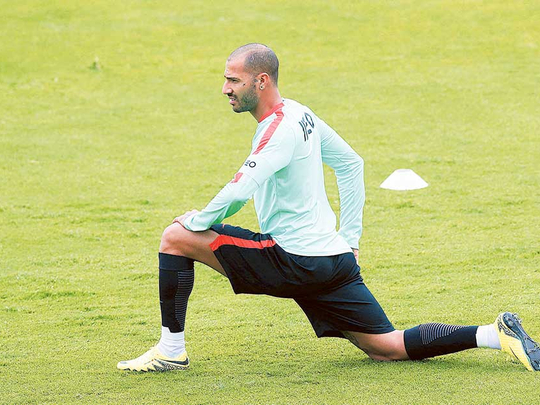
Lyon: There is a spring in his step. He does not walk back; he skips back.
Ricardo Quaresma looks like a man who knows exactly what is going to happen next. “I knew it would be a goal,” Quaresma admitted after scoring the penalty that beat Poland in Marseille on Thursday night.
“Before shooting, I was very confident. I had a whole country in my hands.” Perhaps it was simply the vindication of victory. But then, Quaresma has always been a player with a touch of the mercurial to him. His penchant for fancy skills and outrageous goals has endeared him to fans around the world; his aversion to tactical instruction has infuriated almost as many coaches.
He has a teardrop tattooed on his cheek, which normally means you have killed a man. No such evidence exists, but then with Quaresma you can never quite rule it out entirely.
He is 32 years old, and despite winning the Champions League, 55 international caps and titles in three different countries, is often described as a wasted talent.
What people really mean is that he did not become the player who he grew up with in the Sporting Lisbon academy, and to whom he has been unflatteringly compared every since: Cristiano Ronaldo.
Perhaps it helps to think of Ronaldo and Quaresma as a modern-day Pele and Garrincha.
Ronaldo is the clean-living superstar who developed into one of the most destructive players the game has ever seen.
Quaresma is the errant genius, the surly rebel with a penchant for the trivela (a curling shot with the outside of the foot) and eight different clubs on his CV.
Implausible as it seems now, as teenagers Ronaldo and Quaresma were thought to have roughly similar potential. Ronaldo would play on the left wing, Quaresma on the right, and so fierce was the rivalry between them that they would often refuse to pass the ball to each other.
They had it all: pace, finishing, every trick in the book.
When Barcelona were offered first refusal on one of them, they plumped for Quaresma.
At which point, the story moves into the realm of conjecture. Quaresma lasted just one season at Barcelona under Frank Rijkaard, fell out of favour with Jose Mourinho at Inter Milan, endured a now-forgotten loan spell at Chelsea.
His first spell at Besiktas ended after he threw a bottle at coach Carlos Carvalhal. He is now in his second. There was also a brief spell with Al Ahli in the UAE.
Ronaldo went to Manchester United, where the tough love of Alex Ferguson and Rene Meulensteen coached the empty flamboyance out of his game and turned him into a ruthless, hot-blooded killer.
Might Quaresma have reached a similar level with a similar regimen? It is a question worth pondering. But although their careers have gone in wildly different directions, the national team have entwined their destinies once again.
And for once, it is Quaresma who has stolen the spotlight. Although he has largely been used as an impact substitute, his impact has been considerable: setting up the third goal in a 3-3 draw against Hungary, heading the winner in extra time against Croatia, scoring the decisive penalty on Thursday night.
So it is that a player whose career was widely believed to be over now has the whole country in his hands. The veteran Quaresma is a more mature player these days, creative but reliable, unpredictable but disciplined, a man who will never undo the past but is at least showing signs of learning.
And although Quaresma clearly benefits from Ronaldo’s presence, the reverse is also true: Quaresma’s creativity and poise on the ball draws defenders away from Ronaldo, creating space. Now, despite not winning a single group game, they stand only 180 minutes from a glory that would define the careers of both players. “I’ve always said that it is not how it starts, but how it ends,” Quaresma said last week. He may as well have been talking about himself.


